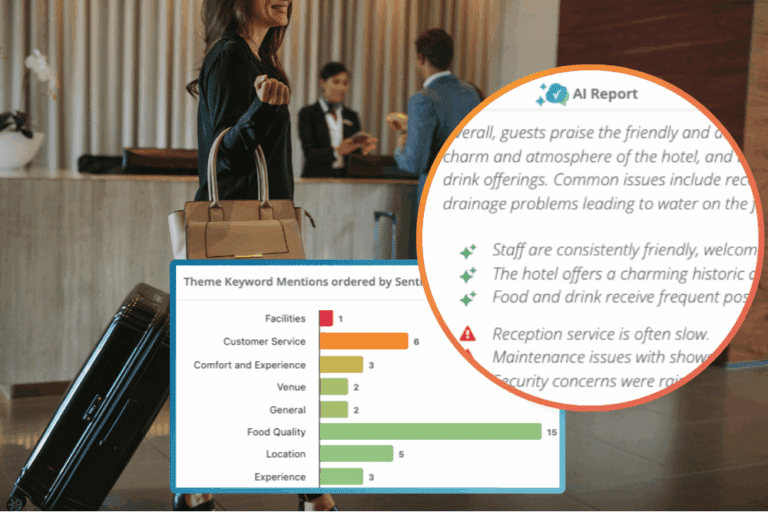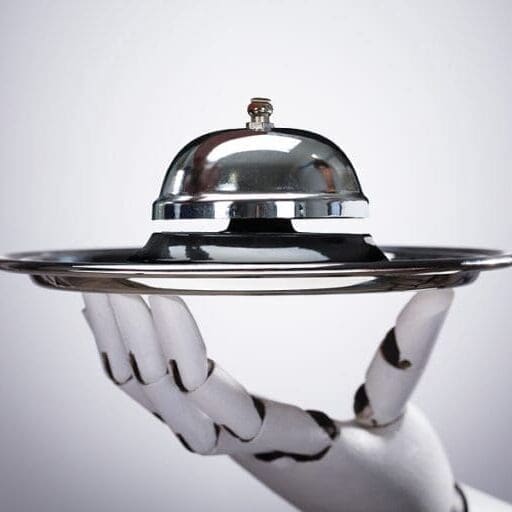 Why is asking for customer feedback so important and how can it be done to enhance the customer journey?
Why is asking for customer feedback so important and how can it be done to enhance the customer journey?
The findings of a recent research project answer these questions that are vital to the success of any business, especially one based on hedonic experiences like the hospitality sector. This article summarizes five best practices grounded in consumer psychology research that businesses should consider when inviting customers to leave feedback on hospitality experiences.
Collecting customer feedback is important
Asking for guest feedback has become the norm in the hospitality industry. According to the travel website Tripadvisor, 52% of customers would never book a hotel that has zero reviews.
According to the online booking website Expedia, customers are willing to pay 24% more for hotels with a rating of 3.9 versus 2.4 (on a 1-5 scale), and are willing to pay 35% more for hotels with a rating of 4.4. versus 3.9 (on a 1-5 scale).
This is why businesses collect reviews and ratings. Getting consumers who experienced your offering to rate or review your business – ideally in a positive way – results in this information convincing other consumers to choose your establishment versus others. Little attention is paid to the reviewer or rater in this particular step of the consumer journey.
A marketing touchpoint
What if you were to also focus some of the attention on the consumer who writes the review or rates the business? Many consumers receive feedback requests about past experiences every day. It is often recommended for businesses to automatically ask every consumer to leave a review. The consumer feedback company HappyOrNot with its iconic consoles featuring four green and red smileys (see image), has collected more than 1.5 billion customer ratings for 4000 businesses.
As being asked for feedback by companies is part of almost every consumer journey nowadays, businesses should consider treating it like any other consumer touchpoint. A modern consumer journey should include being asked for feedback. And the goal of each touchpoint as part of a consumer journey is to leave a positive impression in a customer’s mind.
The research findings
How hospitality businesses ask for feedback makes a difference and can retroactively change a customer’s opinion of them. The scientific community has already investigated this; research has found that asking consumers to explain their views can lead to dampened opinions of hedonic experiences. Hedonic experiences are experiences done for pleasure, enjoyment and fun, and are offered by many hospitality businesses. Asking consumers to mention positive aspects in their feedback can increase their opinion’s positivity and their loyalty. Asking consumers to share their views in spoken language versus written language increases the connection to the reviewee.
Reviews and ratings – what’s the difference?
I have investigated an additional question as a part of my research. Does it make a difference whether a customer writes a review or rates a business? I have found that this retroactively changes the consumer’s opinion in two ways.
First, writing reviews make the reviewer’s opinions clearer. Due to the structure of language, one’s own opinion is forced into the grammar and syntax of writing, making it easier to recognize logical connections. This increased clarity about one’s opinion also increases its polarity (i.e., it makes one’s positive opinion more positive and vice versa), as it is now more prominent in one’s mind.
Second, writing reviews is a more social form of interaction than ratings. Since customers communicate with friends and family in writing, reviewers are more likely to think of writing reviews as social interaction. In contrast, as we rarely rate our peers, we do not perceive rating as social interaction. Therefore, a review causes a focus on the social aspect of exchange and drives consumers to feel closer to the reviewee. This makes consumers perceive the consumer experience more positively compared to rating it.
What to do with all this text?
As you can read, many recommendations of this article point toward asking consumers for written reviews. However, managers like simple 1-to-5-star ratings as they are easy and quick to analyze. Individual aspects of the business can be compared using simple analytical techniques such as averaging scores for specific periods. So, what can you do if you implement these best practices and only ask for written reviews from now on?
Due to technological advances, software understands written reviews and can reduce them to a simple number comparable to 1-to-5-star ratings. Services like TextIq by Qualtrics, MonkeyLearn, or Sentisum do exactly that. Some can also summarize key drivers for high or low sentiment scores.
Asking customers for reviews – best practices
1. Ask customers for reviews instead/on top of ratings. Writing a text about one’s opinions makes them more apparent in the customer’s mind. Writing is also a more social interaction than rating, enabling the customer to become more connected to the reviewee.
2. Ask customers to mention specifically what went well. This helps customers focus on the positive aspects and retroactively creates a more favorable impression of the experience.
3. Do not ask customers to explain their opinions. As experiences in hospitality are mostly hedonic, it is difficult for consumers to explain why they were good. And if it is difficult to argue why something was good, it causes customers to question whether it was that good. For hedonic experiences, simply let consumers express whether they were good or not!
4. Ideally, ask consumers to share their reviews in spoken language. Speaking is an even more social form of interaction than writing. Therefore, speaking is better at connecting consumers to the reviewee than writing. You could ask customers to share their reviews via video!
5. Use sentiment analyses to transform written reviews into ratings. Many businesses rely on consumer ratings to conduct their regular reports. Sentiment analyses allow enterprises to transform text into a numerical score for conventional analysis.
Contributing to the customer experience
Requesting guest feedback has become common practice in the hospitality industry. Currently, businesses focus entirely on their needs when requesting customer feedback: They consider the information they need to convince other potential future customers to choose them. They might also consider which information their employees will need for their annual assessments.
However, latest research and best practices from other industries suggest that businesses should also consider the impact their feedback requests have on the customer being requested for and giving the feedback. The premise of this article is that requesting customer feedback should be treated just as any other touchpoint along the consumer journey – it should be designed in a way that it positively contributes to the overall customer experience.





















